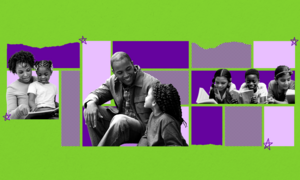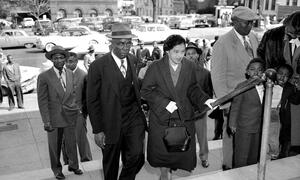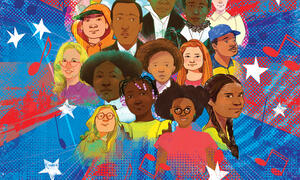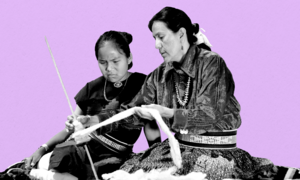Stories Can Offer Affirming Models of Love and Acceptance
This holiday season, share stories with children that deepen our values and celebrate our shared humanity. “Fireflies,” our newest children’s story about family, love and identity, gives children affirming messages and offers a model to adults on responding to a child questioning their sexual orientation or gender identity. When 10-year-old Kaden wonders whether he’s gay, he turns to his older brother Zain, who offers the love and acceptance all caring adults should give to a child.

Fireflies

Growing Together: For Children and Families

Amanda Gorman
Learning From the Civil Rights Movement
The Civil Rights Movement is a story of people who believed they could bring about change to ensure civil and human rights for themselves and future generations. That change did not come easily, nor did it come without disappointments and sacrifices. As we stand on the shoulders of generations who fought for the reality of our nation’s democratic ideals, we cannot afford to lose hope. We must build resiliency in ourselves and our communities, resist hate, and recommit to our values: justice, human rights for all and democratic governance.

Learning from the Civil Rights Movement

Teaching About the Montgomery Bus Boycott

Listening and Learning: A Conversation With Valda Harris Montgomery
Honest History Can Help Prepare Young People for Life’s Complexities
Learning the honest history of our nation helps us understand our diversity and strengthens us all as we work toward building on more solid national foundation of truth and justice. As we celebrate Native American Heritage Month, the Learning for Justice page offers resource to learn and teach about the diversity of Indigenous cultures and communities. To explore our historical complexity, the recent magazine article, “American Patriotic Songs: Context and Perspective,” helps us to confront the various perspectives that a single patriotic song can embody.

American Patriotic Songs: Context and Perspective

Celebrate Native American Heritage

Celebrating African and Indigenous Cultures
Becoming a Village to Nurture Children
Nurturing children requires a community’s efforts to come together, as reflected in the proverb “It takes a village to raise a child.” Our nation’s children deserve love, not just in words but in our actions. These new Learning for Justice magazine articles offer models for parents, caregivers, educators and community members to nurture children’s growth, learning and well-being. And they remind and encourage us that: “[We] are better together and more effective when we work together rather than in isolation.

Loving and Nurturing Young People

Becoming a Village

The Heart of Facilitation in Restorative Justice
Our Children Are a Rainforest of Potential – What Future Will We Give Them?
The well-being of children should concern us all. This crucial election week, we must unite in choosing a more inclusive and democratic society. Georgia educator Katie Rinderle, who was fired for reading a children’s book about acceptance, encourages us to advocate for all children, reminding us of the importance of our votes at all levels, including local school boards. And feature articles from our new fall magazine on food insecurity and the critical need to end the school-to-prison pipeline emphasize the critical need to live up to our nation’s democratic values.

Children Are a Rainforest of Potential

Child Hunger Should Concern Us All
